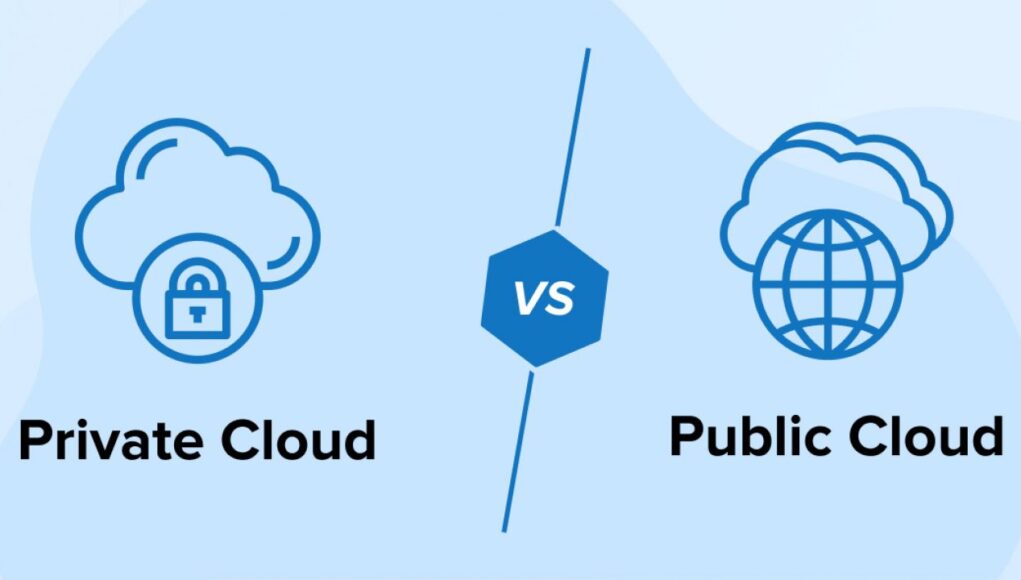Storing data efficiently and securely is a critical concern for modern businesses. The growing importance and popularity of cloud computing have transformed how organizations manage their data and applications. Companies now choose between private and public virtual data storage solutions, offering distinct advantages.
Both serve unique purposes and cater to multiple business needs. Highlighting the importance of understanding private cloud vs public cloud options is the primary focus of this article. Gain insights into the advantages and aspects of each model, empowering you to make the right choice.
Public Cloud: Embracing Flexibility
Public solutions operate on a shared infrastructure, where multiple clients use the same resources, albeit securely partitioned.
Cost Efficiency
One of the most significant advantages of these services is cost efficiency. By utilizing a shared infrastructure, can minimize initial capital expenses and opt to pay solely for the resources they consume. This pay-as-you-go model is particularly beneficial for startups and small to medium-sized businesses that must manage their budgets carefully.
Scalability and Elasticity
Public clouds excel in scalability. Businesses experiencing fluctuating workloads can quickly scale their resources up or down based on demand. This elasticity ensures that companies can handle peak loads without investing in additional hardware, which might remain underutilized during off-peak times.
Accessibility and Integration
Such feasible options are accessible from anywhere with an internet connection, promoting collaboration and remote work. Such platforms offer various integration options with third-party services and tools. This enables businesses to build a comprehensive, interconnected ecosystem.
Private Cloud: Prioritising Control
In contrast, private solutions can be hosted on-premises or by a third-party service provider. Such virtual storage options offer a high degree of control over the infrastructure and security measures.
Enhanced Security and Compliance
Private options offer enhanced security and compliance capabilities for organizations operating in industries with stringent regulatory requirements. Since the infrastructure is dedicated to a single entity, it provides better control over data sovereignty, encryption, and access management. This is particularly important for healthcare, finance, and government sectors, where data privacy is paramount.
Customization and Control
Private options allow for extensive customization to meet specific business needs. Organizations can configure their infrastructure, optimize performance, and implement tailored solutions. This level of control extends to security protocols, where businesses can apply stringent measures to protect sensitive information.
Performance and Reliability
With this solution, businesses can ensure consistent performance and reliability. Since resources are not shared with other organizations, there is less risk of performance degradation due to external factors. This predictability is crucial for applications that require high availability and consistent response times.
Comparing Private Cloud vs. Public Cloud
While private and public solutions offer distinct benefits, their choice depends on various factors.:
Cost Considerations: Public virtual data storage options are generally more cost-effective. However, while requiring higher initial investments, these can provide long-term cost benefits for organizations with stable workloads and specific security requirements.
Security Needs: If your organization handles sensitive data or operates under strict compliance regulations, a private option might be better due to its enhanced security controls. Public options, while secure, involve shared resources, which might not meet specific compliance standards.
Flexibility vs. Control: Public solutions offer unmatched flexibility and ease of integration, making them ideal for businesses prioritising agility and remote accessibility. On the other hand, private clouds provide superior control and customization, which benefits companies with unique infrastructure needs and a desire for tighter security measures.
Therefore, by leveraging both virtual storage solutions, businesses can streamline operations, enhance productivity, and improve collaboration. Choosing the right option in the private cloud vs public cloud debate, based on your business needs, budget, and target audience, can drive efficiency and innovation. The right strategy will enable your organization to stay ahead of the curve and responsive in a rapidly evolving market.














